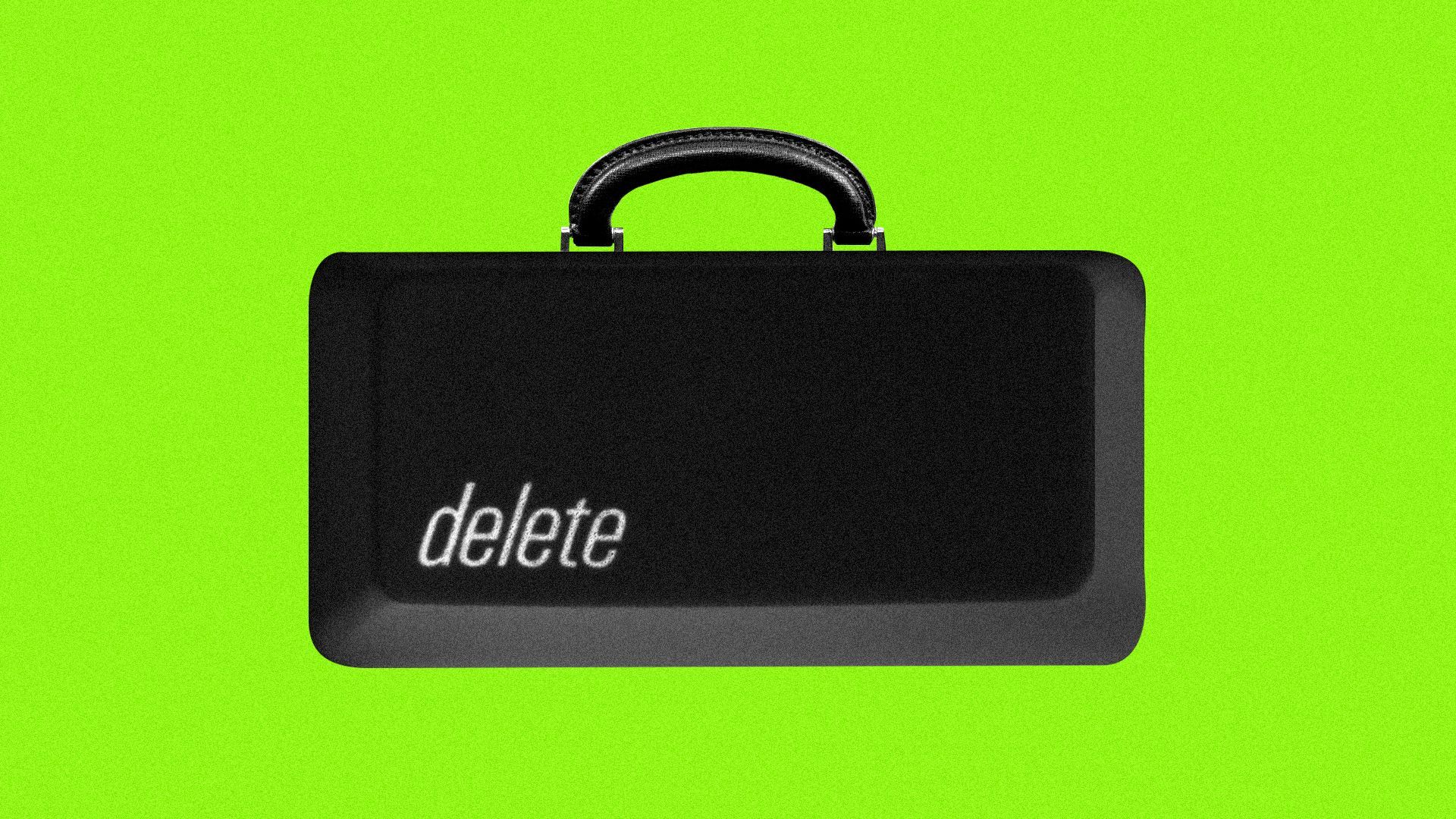IBM CEO among the first major executives to say they'll replace jobs with AI
- Nathan Bomey, author of Axios Closer

Illustration: Aïda Amer/Axios
IBM's CEO is setting his sights on using artificial intelligence to eliminate thousands of jobs in one of the first acknowledgments by a major company that it plans to reduce its workforce with AI.
Why it matters: AI has the potential to fundamentally reshape the workforce, much like the industrial revolution and the digital age caused enormous opportunity, upheaval and uncertainty throughout the economy.
Threat level: IBM CEO Arvind Krishna told Bloomberg that the company plans to pause hiring on back-office functions, where the company has about 26,000 workers.
- “I could easily see 30% of that getting replaced by AI and automation over a five-year period," he said.
- That amounts to some 7,800 positions, part of which would involve not replacing jobs after workers leave, the company told Bloomberg.
Be smart: What was unusual about Krishna's comments is that he openly admitted that he'll use AI to slash IBM's workforce.
- To this point, corporate executives have largely been more circumspect about their plans — insisting that AI will simply supplement their workforce or enhance their employees' ability to do their jobs.
Meanwhile, Geoffrey Hinton, known as the "godfather of AI," told the New York Times that he left Google so that he could raise red flags about AI.
- Among them: that it will wipe out jobs like paralegals, personal assistants and translators.
- “It takes away the drudge work,” Hinton told the Times. “It might take away more than that.”
The intrigue: American workers believe that AI will disrupt jobs in general — but they tend to think it won't affect their job.
- 62% "think the use of AI in the workplace will have a major impact on workers generally over the next 20 years," the Pew Research Center reported in a survey published in April.
- But only 28% "believe the use of AI will have a major impact on them personally" — with a full half of Americans saying it won't have any impact on their jobs at all or that it'll be minor.
The bottom line: The AI revolution will lend new urgency to the "anything you can do I can do better" mindset — because if you can't do it better than AI, you'll be at risk of being replaced.
Go deeper:

No comments:
Post a Comment